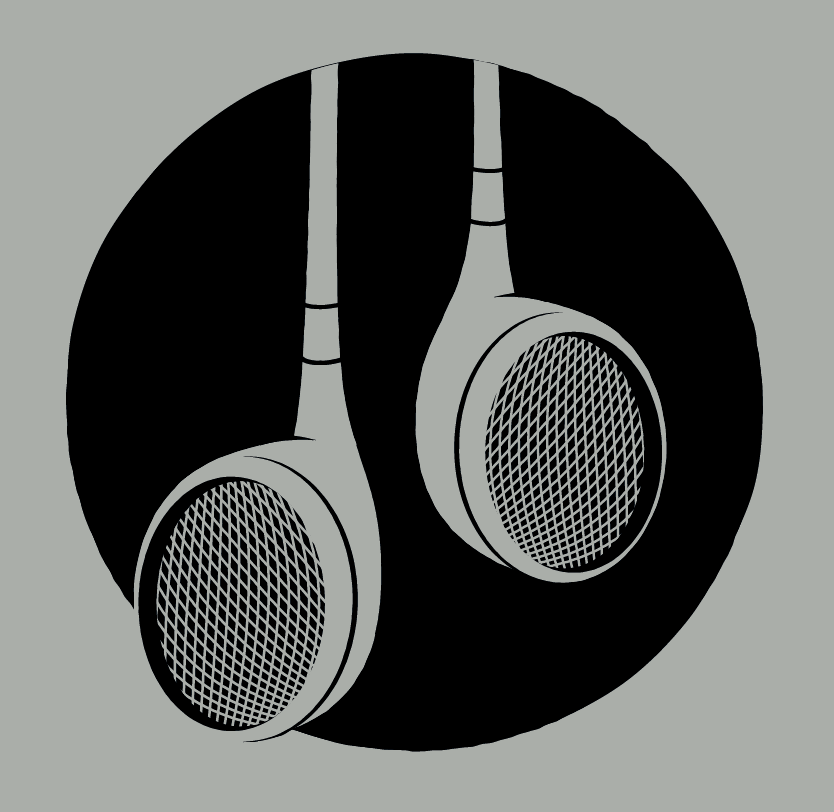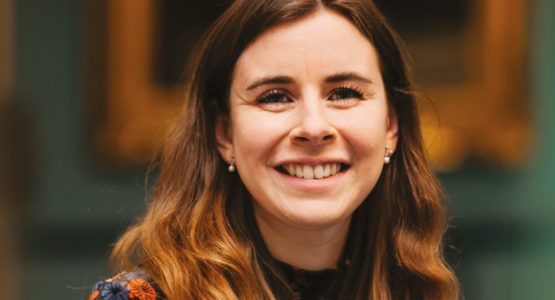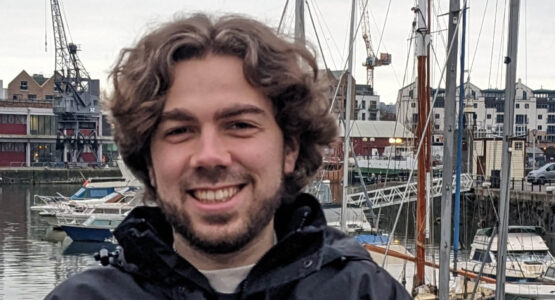Having performed at May Balls and June Events while at Cambridge, perhaps it was inevitable that Mark Savage (1993) would end up in a musically aligned career. Mark worked on radio production and entertainment news before becoming the BBC’s Music Correspondent in 2015. Here he tells us about some of the famous faces he’s met and the music that means the most to him.
If I owe you the song on Tuesday, Monday night I might really get to work on it.
Stephen Sondheim
Stephen Sondheim, there, proving that musicians and journalists aren’t that dissimilar. Creativity has no better catalyst than a deadline.
And like most music writers, I really wanted to be a musician. I don’t remember much of the history I studied at Cambridge, but I spent a lot of time in the Fisher building’s music rooms, punishing the Steinways with hammer-fisted pop chords and tuneless singing.
It never amounted to much. Our band played May Balls and June Events, and we had ‘talks’ with record labels – which amounted to sitting in an office while a dishevelled man with ketchup stains on his jacket played our demo and shook his head sadly.
‘Have you thought about writing for Kylie Minogue?’ he sighed. At the height of Britpop, this was not intended as a complement.
Shaken out of my delusions of stardom, I followed my College roommate – Andrew Carter (1993), now an award-making documentary filmmaker – to Preston for a postgraduate qualification in journalism.
Even with that diploma in my pocket, I took a roundabout path to becoming a reporter. My entry point was as a studio manager for the BBC World – which meant operating the mixing desk for live radio programmes in Africa and the Middle East. This regularly involved working in Swahili, Hausa, Somali, Arabic and several other languages I couldn’t speak. Those programmes made it to air via a complicated system of hand gestures, flashing lights and precisely-detailed scripts. My language skills never really developed, although the call signs ‘Huna London’ or ‘London take kira’ are still seared into my memory.
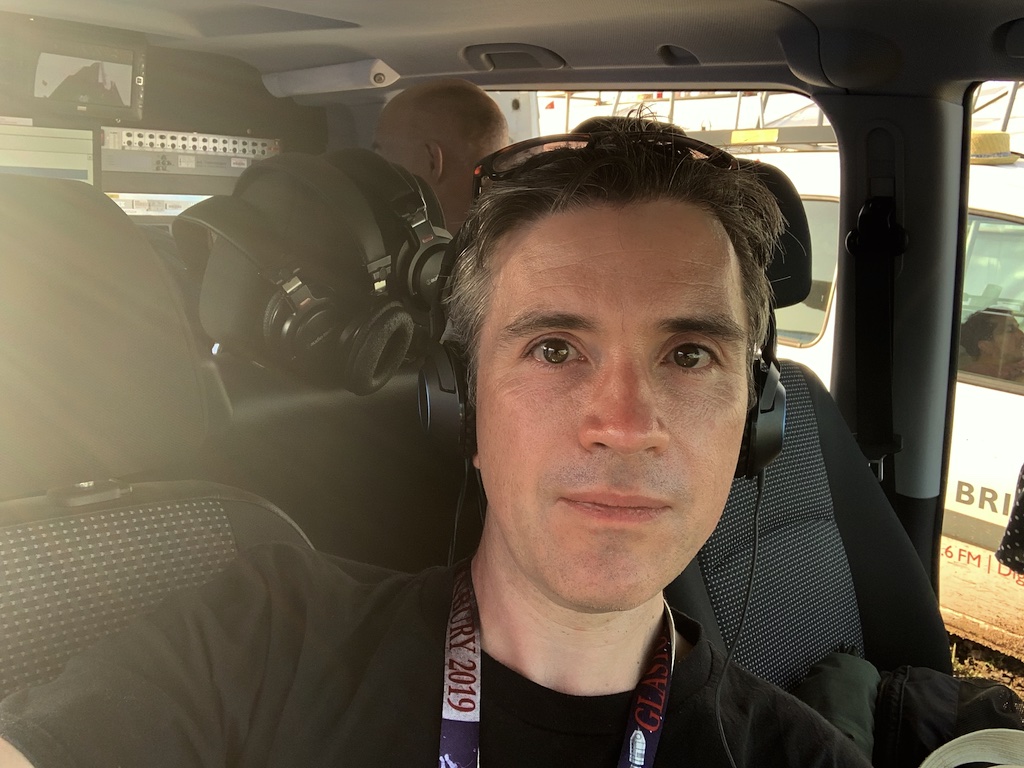
From there, I moved into production – working with the London correspondent for America’s NPR network, and helping to launch the BBC’s tri-media phone-in programme Have Your Say, where callers put questions to everyone from UK Prime Minister Tony Blair to Rwandan president Paul Kagame and, on one particularly memorable occasion, Myanmar’s Aung San Suu Kyi, while she was still under house arrest.
But my heart wasn’t really in global geopolitics. I spent my evenings going to gigs, and my spare time writing jingles and incidental music for TV and radio shows (scoring the ITV shockumentary Dentists From Hell still counts as a career highlight).
By chance, the BBC News website operated from the same office as Have Your Say, and I started pitching articles to their entertainment team. One of those ideas got commissioned and I started work on a week-long series about the writers behind pop acts like Robbie Williams, Girls Aloud, Sugababes and my former nemesis Kylie Minogue.
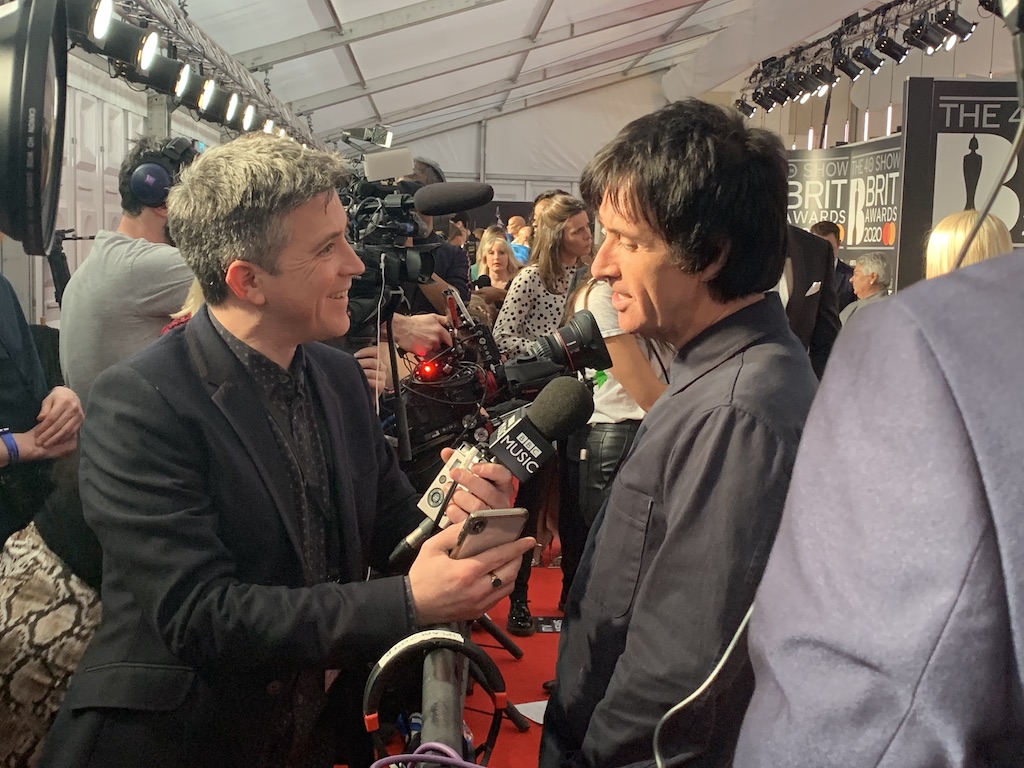
From there I wormed my way into the entertainment team, starting as a general reporter covering everything from the re-opening of the Rijksmuseum to the Cannes film festival, while slowly marking out music as my area of expertise.
Eighteen years later I’m still there, only with the high-falutin’ title of Music Correspondent, and I can’t lie: it’s my dream job.
It’s a thrill to interview your musical heroes and get insights into their motivations, inspirations and creative processes. Even better is being there at the start of someone’s career and giving them a crucial bit of exposure. I profiled people like Dua Lipa, Billie Eilish and Stormzy before they were household names, and there’s a sense of vicarious pride (undeserved, perhaps) when I see them headlining festivals.
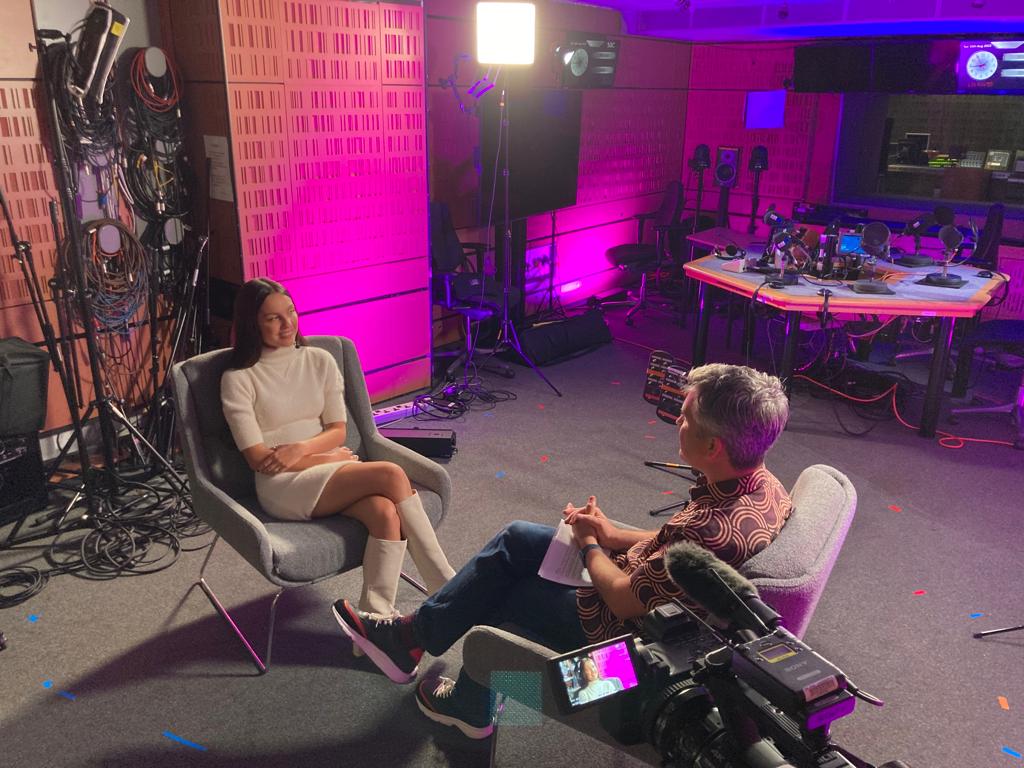
That’s the glamorous part. But the job also involves covering the business side of the music business. There’s an ongoing argument over how artists are paid for their music; the shady world of concert ticketing; the looming spectre of artificial intelligence.
And increasingly a large part of the job involves obituaries. Many are prepared in advance, but others are put together while fighting back tears. I’ll never forget the two hours I spent talking to Prince fans on 5 Live as we processed the news of his untimely death, and the wave of grief that hit me once the programme ended.
People always ask who my worst interviewee was. The boring answer is that there hasn’t been one… yet. Even Madonna turned out to be a sweetheart, jumping to my defence when an overzealous PR tried to shut down our conversation. In fact, the stars who’ve been around the longest tend to have the most enjoyable or scurrilous stories, maybe because they’re no longer scared a badly-thought-out quote will ruin everything.
And that’s the real secret. Every musician (and every journalist) is terrified of two things: being found out, and missing that deadline.
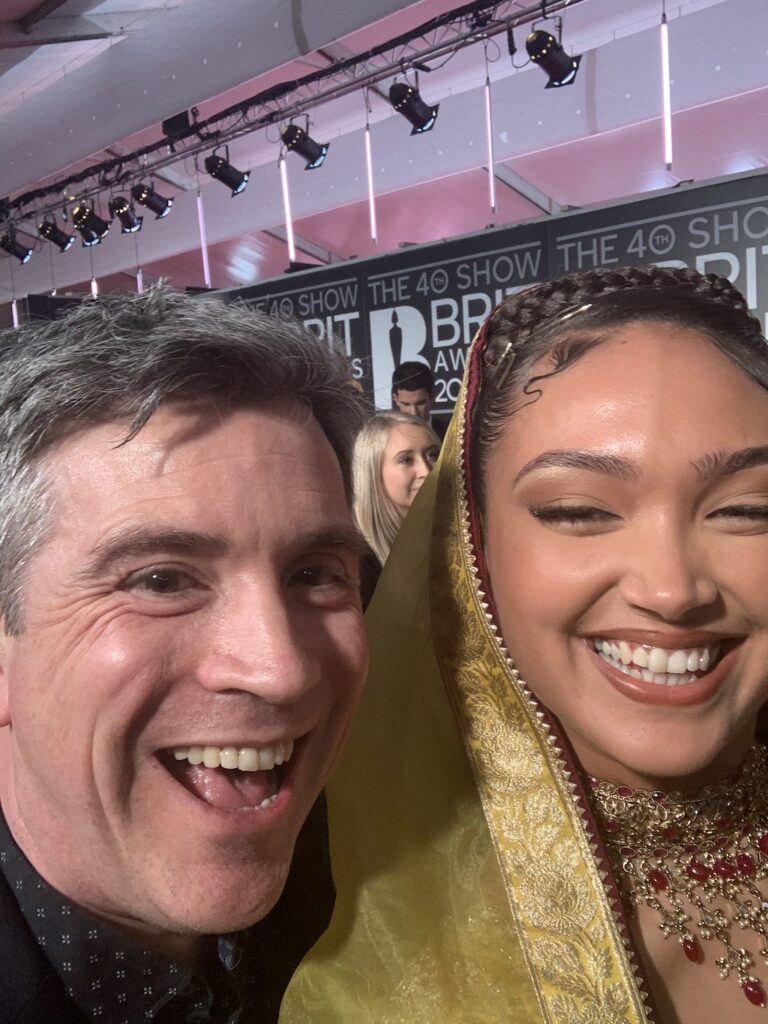
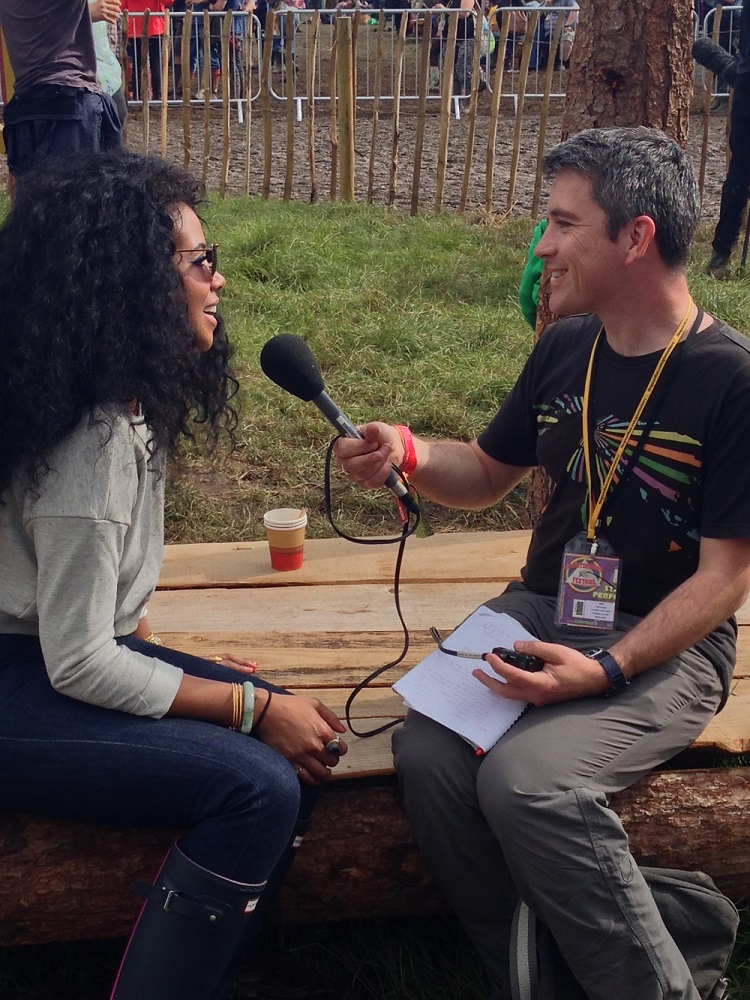
Mark’s playlist choices
ABBA, Dancing Queen (1976)
Only ABBA would write a disco anthem that references the jive. There’s something about the Swedes’ awkward grasp of English idiom that makes their lyrics stick in your head even more firmly – a linguistic tic that I think K-pop has benefitted from in the last decade.
Anyway, this is the first record I owned; and one that set me on a lifelong pursuit of pop perfection.
Annoyingly, they set the bar pretty high.
INXS, New Sensation (1986)
The first song I played on the radio, after a school-friend and I somehow blagged our own show in Belfast at the age of 16.
At Cambridge I ended up becoming President of the student radio station, broadcasting exclusively to the residents of Churchill and New Hall, none of whom tuned in.
This culminated in a 24-hour charity broadcast where, delirious with sleep deprivation, we put a slice of white bread on a turntable and tried to play it. It sounded quite a lot like Sisters Of Mercy.
Prince, Joy in Repetition (1990)
Prince’s talent seems almost inexplicable. The sheer number of instruments he could play, the vast catalogue of songs he recorded, the incredible breadth and taste of his musical influences, the degree of control he had over his band and his audience.
I saw him in concert dozens of times. But the most memorable was in Hammersmith, 2002. He was touring the spiritual jazz concept album The Rainbow Children, and it was probably the last time I saw him relax and play what he wanted on stage, instead of catering to the greatest hits crowd.
Among the setlist was perhaps his most vulnerable and romantic song, built around the lyric: ‘Loving someone is truly believing there’s joy in repetition’. On the way home, my wife and I got engaged.
The Staves, In The Long Run (2012)
In 2013 Watford folk-rock trio The Staves were booked to play on a different stage every day at the Glastonbury Festival. I hatched a plan to follow the three sisters, Emily, Camilla and Jessica, around the site to produce a diary of their weekend.
Along the way, we found a four-leaf clover, serenaded John Humphrys and stole Bruce Forsyth’s digestive biscuits before, in a wonderful twist of fate, the band were asked to help Sunday night headliners Mumford & Sons with their cover of With A Little Help From My Friends.
That’s one of those moments where BBC impartiality flies out the window and you just celebrate the excitement of seeing people achieve their dream.
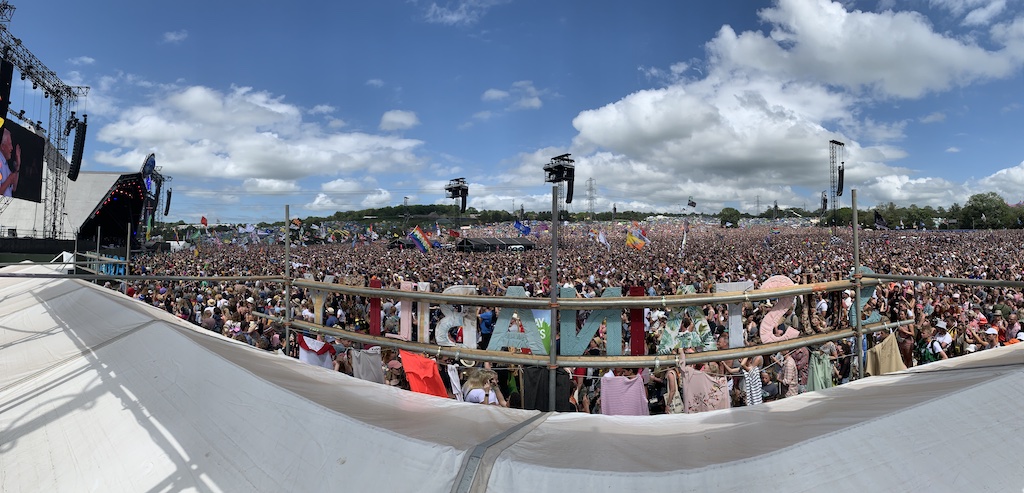
Lana Del Rey, A&W (2023)
This is my current obsession, from Lana’s ninth album Did You Know That There’s a Tunnel Under Ocean Blvd.
It’s a seething, seven-minute riposte to all the misogyny that’s she’s been subjected to across her career (she’s a fake, she doesn’t write her own songs, she’s too old at the age of 33). But it’s also beautiful, all muted pianos and stacked harmonies, before morphing into a pseudo-playground chant over a hypnotic trap beat.
I’ve interviewed Lana a couple of times and she’s incredibly self-assured and inquisitive about the world. Last time we met, she insisted on taking a tour of the BBC newsroom and seeing where all the satellite feeds came in. Not a single person recognised her, which pleased her greatly.
This article is the 10th in the Johnian Playlist series, which features the favourite tracks of our alumni. You can listen to all the previous choices on the playlist below.
Written by
Every issue of Johnian magazine includes a playlist feature article, in which an alumnus/a submits their top tracks alongside details about their lives.


